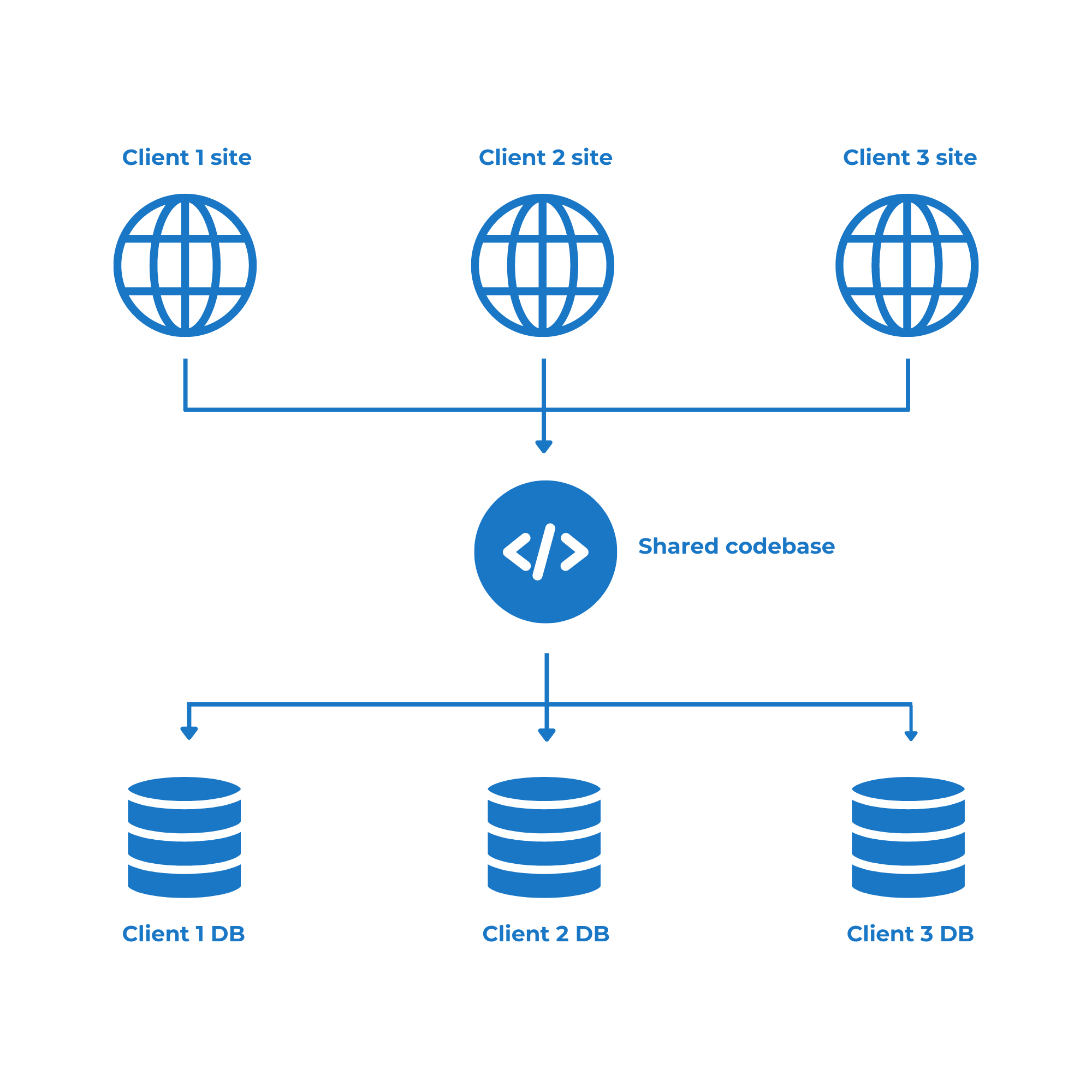If you manage many sites or want to create a platform to sell your websites as services (WaaS), it is not advisable to have independent sites.
It is better to have a structure that allows you to manage many sites in a centralized way.
For this, you have two options: WP Multisite and WP Multitenant.
The way databases are handled is a key difference between WordPress Multitenant and WordPress Multisite, but it’s not the only factor.
Let’s break down the distinctions:
WordPress Multisite
- A single WordPress database is shared across all sites in the network.
- Each site has its own set of tables within that database, prefixed to differentiate them (e.g., wp_2_, wp_3_, etc.).
- Efficient for networks of related sites needing similar functionality.
- Site isolation is weaker, as a database issue can affect the entire network.
- Less granular control over individual sites.
- Scaling can become more complex.
WordPress Multitenant
- Each site has its own separate, isolated database.
- While the WordPress codebase is shared, the data is completely segregated.
- Enhanced security as issues on one site don’t impact others.
- Increased flexibility for customizing individual sites.
- Improved scalability, as each site’s resources are independent.
Which should you choose?
- Multisite: Suitable for related sites (e.g., university department websites, a network of blogs) where a high degree of isolation isn’t critical.
- Multitenant: Ideal for offering WordPress as a service (WaaS) or for large-scale projects where you need to manage many customer sites with strong isolation and flexibility.
Multitenant integration: Wildcloud + WP Frontend Admin
***
IMPORTANT: The WildCloud platform is no longer available. This page remains published for historical purposes only.
***
One of the ways to get the most out of WordPress Multitenancy and WP Frontend Admin is to create web platforms and applications using Wildcloud.
With Wildcloud, you can create hundreds of independent sites with a shared codebase (plugins, themes, language files).
The sites will be lightweight because they won’t have most of the heavy files, plugin and theme folders, etc.
The only thing that each site will need is the database and the uploads.
Plugins, themes and language files will be shared by all tenants/sites.
Free course: Building an eCommerce Platform on Wildcloud
We have a free course on how to build a multitenant ecommerce platform using WordPress Multitenant and WP Frontend Admin.
You can enroll in the free course by clicking here.




